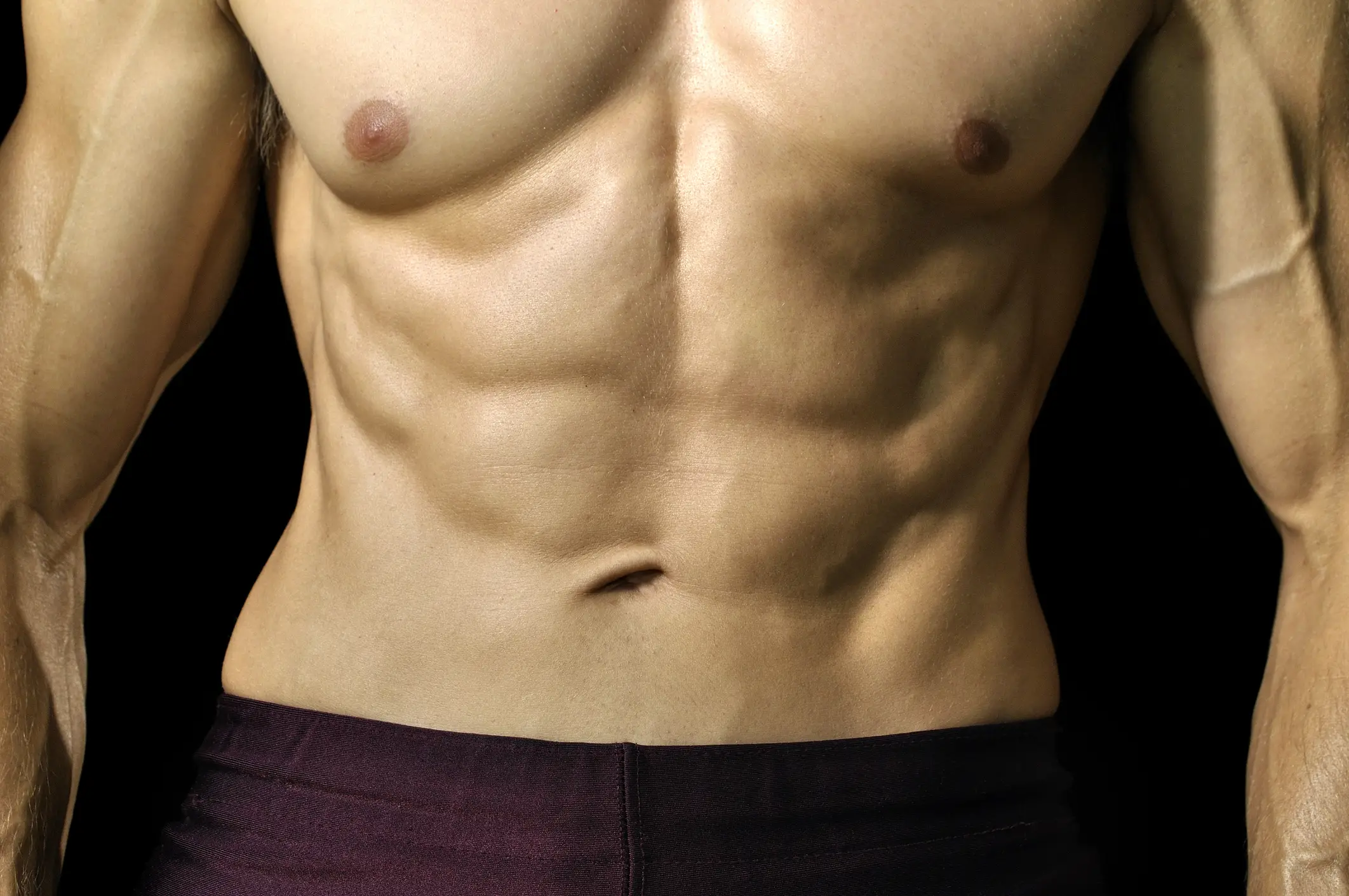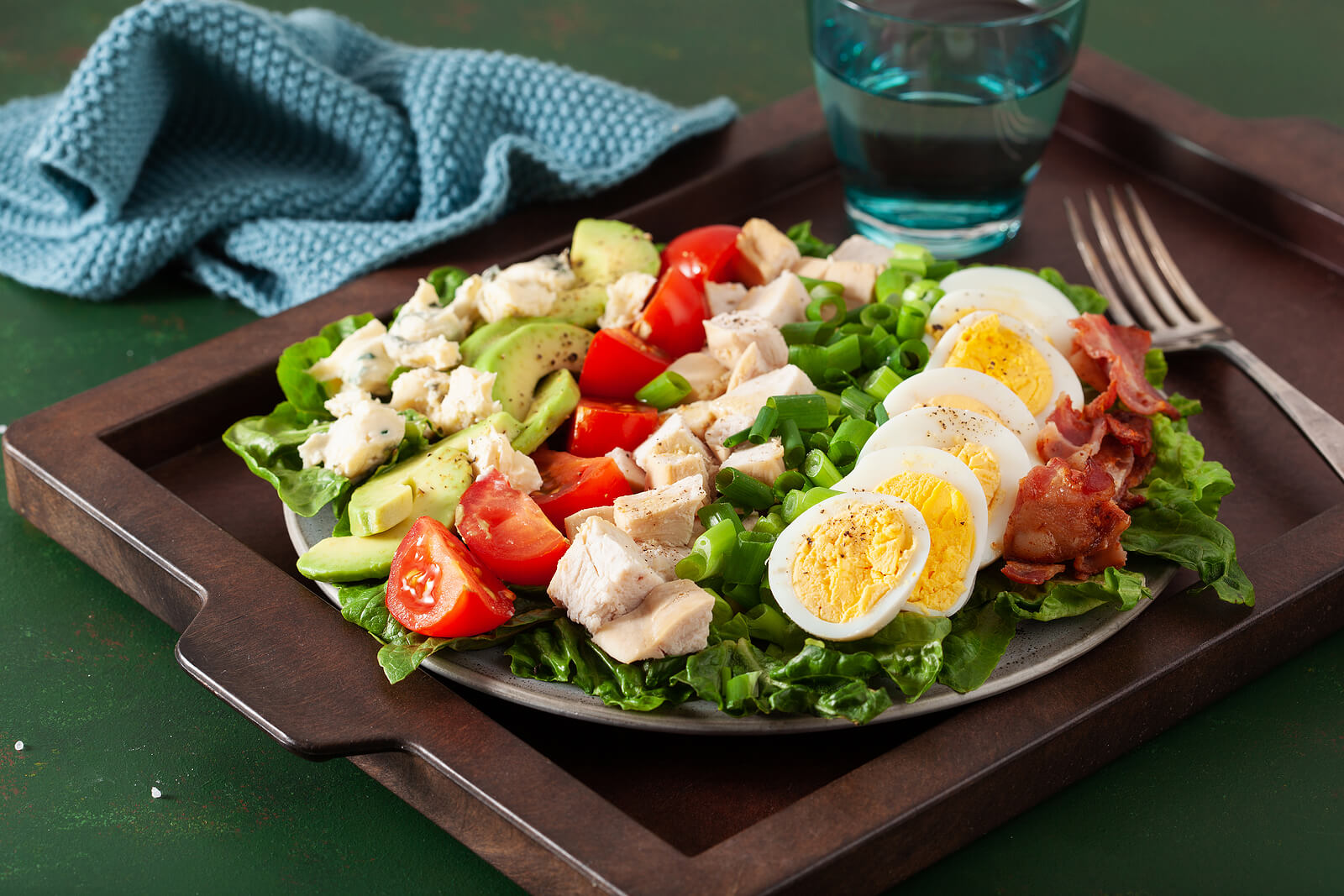If you’re looking to achieve a fit and healthy body, it’s likely that you’ve considered the idea of getting six-pack abs. The six-pack has become a symbol of physical fitness and strength, and many people strive to achieve this look. However, the question remains: is having six-pack abs actually good for your health?
While six-pack abs may look impressive, the truth is that having visible abdominal muscles doesn’t necessarily mean you’re healthy. In fact, some people who have six-pack abs may actually be at risk for health problems.
For example, excessively low body fat levels can lead to hormonal imbalances, which can affect everything from your mood to your ability to reproduce. Additionally, some people may resort to unhealthy methods to achieve six-pack abs, such as crash dieting or over-exercising, which can be detrimental to their overall health.
Understanding Six-Pack Abs
Six-pack abs are a coveted physical attribute for many people. But what exactly are six-pack abs, and are they good for your health? In this section, we will explore the anatomy behind six-pack abs and what it takes to achieve them.
Six-pack abs are the visible result of well-developed abdominal muscles, specifically the rectus abdominis. This muscle group is responsible for flexing the trunk, as well as providing stability and support to the spine. When the rectus abdominis is well-developed and has low body fat covering it, the muscle fibers become visible, creating the appearance of a six-pack.
While having six-pack abs may be aesthetically pleasing, it does not necessarily indicate good health. In fact, achieving six-pack abs often requires extreme dedication to exercise and strict dietary habits, which can actually be detrimental to your health if taken to an extreme.
Additionally, genetics play a significant role in the visibility of your abdominal muscles. Some people may have well-defined abs with minimal effort, while others may struggle to achieve the same results despite their best efforts.
In summary, six-pack abs are the result of well-developed abdominal muscles and low body fat. While they may be aesthetically pleasing, achieving them often requires extreme dedication to exercise and strict dietary habits, which may not be healthy for everyone. Genetics also plays a significant role in the visibility of your abdominal muscles.
The Role of Exercise in Achieving Six-Pack Abs
Achieving six-pack abs is a common fitness goal for many people, but it’s important to understand the role of exercise in achieving this goal. The truth is, exercise alone is not enough to achieve a chiseled six-pack. While exercise can help strengthen and tone your abdominal muscles, it’s only one piece of the puzzle.
To achieve six-pack abs, you need to focus on reducing body fat through a combination of exercise and a healthy diet. This means incorporating both strength training and cardiovascular exercise into your routine to help burn calories and build muscle.
Strength training exercises such as squats, deadlifts, and resistance training can help build muscle and increase your overall strength. This can help you perform other exercises more effectively and improve your overall fitness level.
In addition to strength training, incorporating core exercises such as crunches and sit-ups into your routine can help strengthen and tone your abdominal muscles. However, it’s important to note that these exercises alone are not enough to achieve six-pack abs.
Cardiovascular exercise such as running, cycling, or HIIT workouts can help burn calories and reduce body fat, which is essential for achieving a visible six-pack. Incorporating aerobic exercise into your routine can also help improve your overall cardiovascular health.
It’s important to remember that achieving six-pack abs takes time and dedication. It requires a combination of exercise, a healthy diet, and a commitment to your fitness goals. By incorporating a variety of exercises into your routine and focusing on reducing body fat, you can work towards achieving a chiseled six-pack.
Diet and Nutrition for Six-Pack Abs
To achieve six-pack abs, you need to focus on your diet and nutrition. Eating a healthy and balanced diet is crucial for reducing body fat and building muscle mass.
Firstly, you need to reduce your overall body fat percentage. This can be achieved by creating a calorie deficit, which means consuming fewer calories than you burn. You can do this by eating foods that are low in calories but high in fiber, such as fruits, vegetables, and whole grains. These foods will keep you feeling full for longer and reduce your overall calorie intake.
Secondly, you need to increase your protein intake. Protein is essential for building and repairing muscle tissue. Lean proteins such as chicken, turkey, fish, legumes, and low-fat dairy products are excellent sources of protein. Aim to consume at least 1 gram of protein per pound of body weight per day.
Thirdly, you need to choose healthy fats over saturated fats. Healthy fats such as nuts, seeds, avocados, and olive oil are essential for overall health and well-being. Saturated fats found in processed foods and red meat should be limited as they can increase your risk of heart disease.
Finally, you need to stay hydrated. Drinking plenty of water is essential for maintaining a healthy body and reducing body fat. Aim to drink at least 8-10 glasses of water per day.
In summary, to achieve six-pack abs, you need to focus on a diet that is low in calories but high in fiber, rich in lean proteins, healthy fats, and whole grains. Drinking plenty of water is also crucial for maintaining a healthy body and reducing body fat.
Impact of Six-Pack Abs on Health
Having a six-pack is often seen as a sign of being fit and healthy. However, it’s important to understand the impact of having six-pack abs on your overall health. In this section, we will discuss the positive impacts of having six-pack abs and the potential risks associated with it.
Positive Impacts
Having six-pack abs is often associated with being lean and strong. Achieving six-pack abs requires a low body fat percentage, which can help reduce the risk of developing visceral fat. Visceral fat is the type of fat that accumulates around your organs and is linked to an increased risk of heart disease and cancer.
Having a strong core is also essential for sports and functional movements. Six-pack abs are a sign of having a strong core, which can help improve your overall performance in sports and reduce the risk of lower back pain and injury.
Potential Risks
While having six-pack abs can have positive impacts on your health, there are also potential risks associated with it. Achieving six-pack abs requires a low body fat percentage, which can lead to subcutaneous fat loss. Subcutaneous fat is the fat that is stored just under your skin and helps regulate body temperature and protect your organs.
Losing too much subcutaneous fat can lead to a decrease in overall well-being and flexibility. It’s important to maintain a healthy body fat percentage and not focus solely on achieving ripped abs.
Additionally, focusing too much on achieving six-pack abs can lead to an increase in inflammation and strain on your body. It’s important to focus on building a functional core rather than just aesthetic abs.
In conclusion, having six-pack abs can have positive impacts on your health, such as reducing the risk of visceral fat and improving core strength. However, it’s important to maintain a healthy body fat percentage and not focus solely on achieving ripped abs. Focusing on building a functional core and overall fitness is key to maintaining good health.
The Role of Genetics and Hormones
When it comes to achieving six-pack abs, genetics, and hormones play a significant role in determining your success. While some people are genetically predisposed to having a lean, muscular physique, others may struggle to achieve the same results despite putting in the same amount of effort.
Hormones also have a significant impact on your ability to develop six-pack abs. Cortisol, also known as the “stress hormone,” can cause your body to store excess fat in your midsection, making it more challenging to achieve a toned, muscular look. Additionally, testosterone plays a crucial role in muscle development, so having optimal levels of this hormone can help you build lean muscle mass more efficiently.
While genetics and hormones can certainly influence your ability to develop six-pack abs, it’s important to remember that they are not the only factors at play. Your diet, exercise routine, and overall lifestyle habits also play a significant role in determining your success.
To optimize your chances of achieving six-pack abs, it’s essential to focus on a well-rounded approach that includes a healthy diet, regular exercise, and stress management techniques. By taking care of your body and mind, you can help support optimal hormone levels and improve your chances of achieving your fitness goals.
Psychological Aspects of Six-Pack Abs
Having six-pack abs is often seen as a symbol of fitness and health. However, there are also psychological aspects to having a toned midsection. Here are some things to consider:
Confidence
Having visible abdominal muscles can boost your confidence and self-esteem. It can make you feel more attractive and confident in your appearance. This can translate to other areas of your life, such as your work or social interactions.
Appearance
While having six-pack abs can improve your appearance, it’s important to remember that everyone’s body is different. Some people may have a harder time achieving a toned midsection due to genetics or other factors. It’s important to focus on overall health and fitness rather than just appearance.
Stress
Exercise, including core exercises that target the abdominal muscles, can help reduce stress and anxiety. However, it’s important to find a balance and not become obsessed with achieving a certain look or body type.
Energized
Regular exercise, including core exercises, can also boost your energy levels and make you feel more alert and awake throughout the day. This can have a positive impact on your overall mood and well-being.
Vibrant
A healthy and active lifestyle can make you feel more vibrant and alive. Incorporating core exercises, such as those that target the abdominal muscles, can be a part of this overall lifestyle. However, it’s important to remember that there are many factors that contribute to overall health and well-being, and having six-pack abs is just one small aspect.
Six-Pack Abs and Sports
If you’re a sports enthusiast or a fitness buff, you might be wondering if having six-pack abs is good for your health. While having a toned midsection can be aesthetically pleasing, it’s important to understand the relationship between six-pack abs and sports.
Let’s start with football. While having six-pack abs is not a requirement to excel in football, having a strong core is essential. A strong core can help with balance, stability, and explosiveness on the field. Football players often incorporate core exercises, such as planks and Russian twists, into their training regimen to strengthen their midsection.
Athletes in other sports, such as basketball and soccer, also benefit from having a strong core. A strong core can improve agility, coordination, and overall performance on the court or field. It can also help prevent injuries, such as lower back pain.
Bodybuilding is a sport that is often associated with having six-pack abs. While bodybuilders do focus on building a strong midsection, they also emphasize overall muscle development. Bodybuilders often follow strict diet and exercise regimens to achieve low body fat percentages and showcase their muscular physiques.
For fitness enthusiasts, having six-pack abs can be a personal goal. However, it’s important to remember that having visible abs does not necessarily equate to good health. Maintaining a healthy diet and exercise routine, as well as getting enough rest and recovery, are crucial for overall health and well-being.
In conclusion, having six-pack abs can be beneficial for sports performance, but it’s not a requirement. It’s important to focus on overall core strength and muscle development, as well as maintaining a healthy lifestyle, for optimal health and performance.
Debunking Myths about Six-Pack Abs
There are many misconceptions about six-pack abs, and it’s important to separate fact from fiction. Here are some common myths about six-pack abs that need to be debunked:
Myth #1: Six-Pack Abs is a Magic Bullet for Health
Having six-pack abs doesn’t automatically mean you’re healthy. In fact, focusing solely on achieving a six-pack can lead to an unhealthy obsession with your appearance and an unhealthy approach to fitness. It’s important to remember that health is about more than just how you look. It’s about how you feel, how you function, and how you live your life.
Myth #2: Six-Pack Abs is the Key to Losing Belly Fat
While it’s true that having a low body fat level is necessary to see your abs, it’s not true that having six-pack abs is the key to losing belly fat. In fact, spot-reducing belly fat is not possible. To lose belly fat, you need to lose body fat overall. This requires a combination of a healthy diet and regular exercise.
Myth #3: Six-Pack Abs are Only for the Thin and Fit
You don’t have to be thin or fit to have six-pack abs. However, it’s important to remember that everyone’s body is different, and genetics play a role in how visible your abs are. It’s also important to note that being too thin or having too low of a body fat level can be unhealthy.
Myth #4: Six-Pack Abs is the Solution to Obesity and Overweight
While having a healthy body fat level is important for overall health, six-pack abs are not the solution to obesity and overweight. Losing weight and maintaining a healthy weight requires a combination of a healthy diet and regular exercise. It’s important to focus on overall health rather than just appearance.
Myth #5: Six-Pack Abs Are All About Abdominal Fat
While abdominal fat does play a role in the visibility of your abs, it’s not the only factor. Building muscle in your abs through exercises like crunches, planks, and leg raises can also help make your abs more visible. However, it’s important to remember that spot-reducing fat is not possible, and overall body fat level is the most important factor in seeing your abs.
Myth #6: Six-Pack Abs Require Extreme Weight Loss
Extreme weight loss is not necessary to achieve six-pack abs. In fact, extreme weight loss can be unhealthy and unsustainable. It’s important to focus on a healthy and sustainable approach to weight loss that includes a balanced diet and regular exercise.
Myth #7: Six-Pack Abs Are Always Healthy
While having a healthy body fat level is important for overall health, having six-pack abs doesn’t automatically mean you’re healthy. It’s important to focus on overall health rather than just appearance. Additionally, extreme dieting and exercise to achieve six-pack abs can be unhealthy and unsustainable.
In conclusion, while having six-pack abs can be a desirable physical trait, it’s important to remember that health is about more than just appearance. Focus on overall health through a balanced diet and regular exercise, and remember that everyone’s body is different.
Conclusion
In conclusion, having six-pack abs does not necessarily mean that you are healthy. While having a six-pack may be a sign of a healthy lifestyle, it is not a guarantee of good health. It is important to remember that everyone’s body is different, and what works for one person may not work for another.
While having a six-pack may be aesthetically pleasing, it should not be the sole focus of your fitness routine. It is important to prioritize overall health and fitness, which includes a balanced diet, regular exercise, and adequate rest and recovery.
Additionally, it is important to note that achieving a six-pack may require extreme measures such as restrictive diets and excessive exercise, which can be detrimental to your health. It is important to approach fitness and health in a sustainable and balanced way, rather than focusing solely on achieving a certain physical appearance.
Overall, while having six-pack abs may be desirable, it should not be the sole focus of your fitness routine. Prioritizing overall health and fitness through a balanced approach is key to achieving and maintaining good health.






Leave a Reply